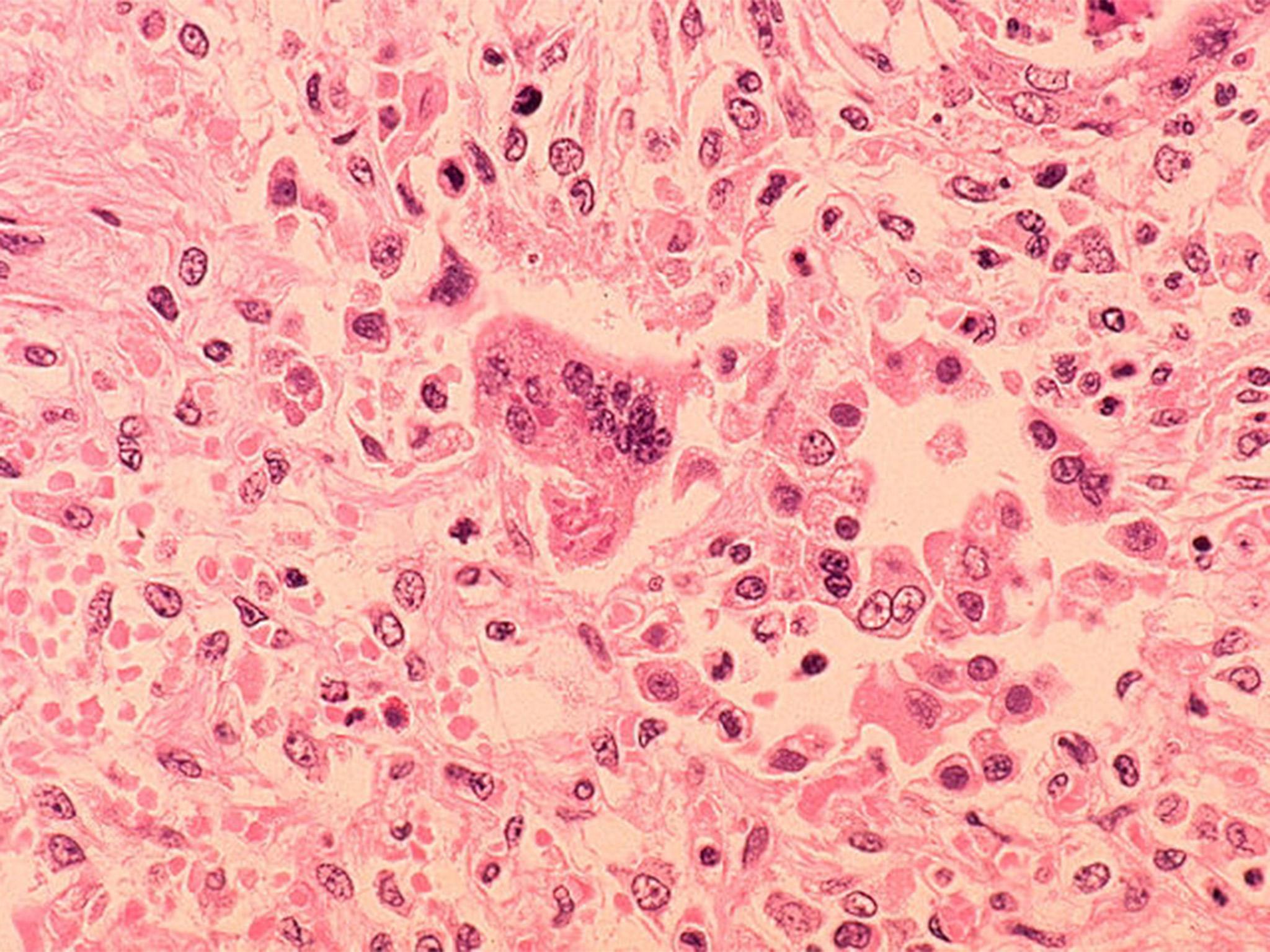Measles eradicated in UK in 'sign of recovery' after MMR vaccine controversy
Medical experts say announcement marks turning point after discredited research by Andrew Wakefield in 1998 linking the MMR jab to autism slowed progress in eradicating disease

Your support helps us to tell the story
From reproductive rights to climate change to Big Tech, The Independent is on the ground when the story is developing. Whether it's investigating the financials of Elon Musk's pro-Trump PAC or producing our latest documentary, 'The A Word', which shines a light on the American women fighting for reproductive rights, we know how important it is to parse out the facts from the messaging.
At such a critical moment in US history, we need reporters on the ground. Your donation allows us to keep sending journalists to speak to both sides of the story.
The Independent is trusted by Americans across the entire political spectrum. And unlike many other quality news outlets, we choose not to lock Americans out of our reporting and analysis with paywalls. We believe quality journalism should be available to everyone, paid for by those who can afford it.
Your support makes all the difference.Measles has been “eliminated” in the UK, global health leaders say, in what doctors have linked to a decline in fears over discredited research linking autism with the MMR vaccine nearly 20 years ago.
The disease has ceased to freely circulate in Britain for three years, which is the length of time a country must sustain “interruption of endemic transmission” before an elimination can be verified, according to the World Health Organisation (WHO).
The UK is also on the verge of confirming the elimination of rubella, the organisation said.
Medical experts in Britain said the WHO’s announcement marked a “sign of recovery” after a discredited research paper by former doctor Andrew Wakefield in 1998 had slowed the process of eradicating the disease.
Mr Wakefield’s research, which claimed that children’s behaviour changed “drastically” shortly after they received the MMR jab, caused vaccination rates to plummet.
The proportion of toddlers getting the jab in the UK fell from well over 90 per cent during the mid-1990s, to below 70 per cent in some places five years after the Lancet paper was published – causing measles rates to climb.
However, the alleged link between the MMR and autism became widely discredited and no respected research has ever supported the findings, prompting the Lancet to say it should never have published the study.
Dr Mary Ramsay, head of immunisation at Public Health England, said there was a correlation between the elimination of the disease and the reversal of attitudes towards the MMR vaccine as word spread that Mr Wakefield’s research was false.
“The Wakefield stuff significantly impacted on uptake, so we moved further away from it. Because of the number of people who weren’t vaccinated due to Andrew Wakefield’s claim, we’re seeing more cases now in people aged 18-25,” she told The Independent.
“It’s a sign of recovery following that rumour having such an impact on uptake rates, so it’s good news.”
Dr Ramsay said Mr Wakefield’s claimed caused a dip in MMR vaccination rates due to the panic caused by the research, as well as “spikes” of measles outbreaks in the UK over the past 20 years.
“There were spikes in cases from 2005 and even into this decade, because it’s a certain age of people who didn’t get their jab,” she added.
“When people travelling from abroad mingle with groups of people who haven’t been vaccinated – for example this happened last year at festivals – then you do tend to see outbreaks.”
The news comes just a week after it was announced England had achieved the WHO target of giving 95 per cent of children their first dose of the measles, mumps and rubella vaccine by their fifth birthday.
Dr Ramsay said Public Health England was “delighted” about the measles elimination, and the attainment of national vaccine coverage by hitting the 95 per cent target.
She added: “This is a huge achievement and a testament to all the hard work by our health professionals in the NHS, to ensure that all children and adults are fully protected with two doses of the MMR vaccine.
“We need to ensure that this is sustained going forward by maintaining and improving coverage of the MMR vaccine in children, and by catching up older children and young adults who missed out.”
Before the introduction of the measles vaccine in 1968, annual measles rates ranged from 160,000 to 800,000, with peaks every two years and around 100 deaths each year.
Following the introduction of the MMR vaccine in October 1988 for all children, and the achievement of coverage levels in excess of 90 per cent, measles transmission was substantially reduced. Notifications of measles fell progressively to very low levels.
To maintain the control of measles and in order to achieve elimination, a second dose of the MMR vaccine was introduced as a pre-school booster in 1996. There have also been a number of MMR catch-up campaigns over the years.
Join our commenting forum
Join thought-provoking conversations, follow other Independent readers and see their replies
Comments